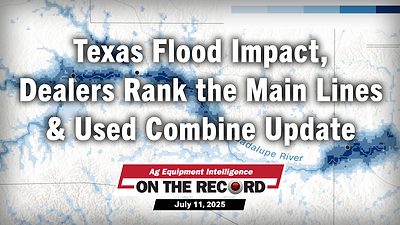The law that now governs farm implements on Wisconsin roads has some gray areas that may need to be addressed in the future.
One of those is tracked vehicles, including tractors, combines and grain carts that are sometimes built to run on tracks rather than axles and wheels.
"Tracked vehicles were not addressed in the Implements of Husbandry law. It may be something we need to look at into the future," said Paul Zimmerman, executive director of governmental relations at Wisconsin Farm Bureau, one of the groups that pushed for the measure to make farm implements legal on roadways in the state.
When the bill was being developed, he said, there was limited study on the effect of the implement tracks on roads and lawmakers didn't feel they had enough information to include those kinds of vehicles in the bill.
"It's a gray area. Because the bill was basing everything on axle weights, some would argue that track vehicles have no axles because of the way they're built and therefore would not be legal.
"Others would argue that the spindles at the center of the track could be considered as axles — so it's a gray area," Zimmerman added. "Some law enforcement officials might consider them legal, some would consider them illegal."
The predominant issue with the track vehicles is that when they turn corners they can damage road surfaces.
Road engineers base their designs on how weight is distributed on vehicles and there isn't a clear way to do that with tracked vehicles, Zimmerman added.
During all six of the Department of Transportation's listening sessions with farmers across the state, tracked vehicles were brought up but there have not been any significant studies "good, bad or indifferent," he said, which means there is no background information to base decisions on.
Balloon tires and tracks under farm implements are both areas where more study and information is needed before they can be addressed in law, Zimmerman added.
For Wisconsin Town Association Executive Director Richard Stadelman, this isn't a gray area. He said tracked vehicles are not legal to operate on Wisconsin highways.
Stadelman contacted the newspaper after we illustrated our story on the signing of the IOH bill into law with a file photo of a large tracked tractor on a paved road. He said he was concerned that the photo might imply to our readers that passage of the bill now made the tracked tractor legal. He maintains that it does not.
"There's nothing in the new Act 377, that addresses tracked vehicles and therefore they are still not currently legal to run on highways," he told Wisconsin State Farmer.





